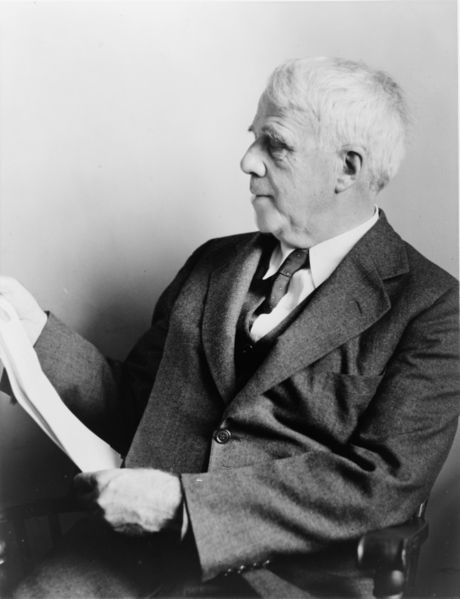This sixth post, from a series of eight, draws from an archive of recently discovered audio recordings of America's most important modern poets, taken during Pearl London's renowned poetry seminars at the New School. The most compelling moments of these conversations were transcribed and published in Poetry in Person: Twenty-five Years of Conversation with America's Poets (Knopf), named by CSM "One of the ten best (nonfiction) books of 2010." The clips used below are all taken from the audiobook companion to Poetry in Person, offering extended, thirty to sixty minute cuts of eight of the best conversations.
 In her conversations with the poets who visited her classroom, London was never afraid to probe into the forces that drove them to write, including their background and upbringing. In the course of these conversations, many of the poets spoke of their parents, both as they were in life and as they are continually reimagined in their poetry. Lucille Clifton, for instance, spoke candidly with London about both her mother and father and talked about the early influence of her mother on her as writer:
In her conversations with the poets who visited her classroom, London was never afraid to probe into the forces that drove them to write, including their background and upbringing. In the course of these conversations, many of the poets spoke of their parents, both as they were in life and as they are continually reimagined in their poetry. Lucille Clifton, for instance, spoke candidly with London about both her mother and father and talked about the early influence of her mother on her as writer:
Interestingly—tellingly—this is not at all how Clifton herself writes; her poems rarely feature rhyme, or even standard capitalization and punctuation, tending instead towards a bluesy, colloquial cadence. Her mother may have made Clifton recognize that poetry "was a thing one could do," but it didn't mean that Clifton would do this thing her mother's way.
Here, parental influence is often painted as something to be resisted rather than absorbed—and this tension is even more pronounced when the mother or father becomes the poetic subject. When London speaks with William Matthews about his poem "My Father's Body," she complains of the absence of personal details.
Here's their discussion, and below is the excerpt in question:
[audio:https://alexanderneubauer.com/wp-content/uploads/2011/05/Matthews-on-his-father.mp3|titles=Matthews on his father]The ashes will be scattered,
says a hushed man in a mute suit,
in the Garden of Remembrance,
which is out back.
And what's left of a mild, democratic man
will sift in a heap with the residue of others,
for now they all belong to time.
Matthews explains that it was his father's "mild, democratic" nature that seemed most durable and that "touched the most people." He elegizes his father using the terms one might for a public figure, rather than more intimately paternal qualities.
Paul Muldoon speaks to the difficulty of capturing a parent through poetry when London asks him about "Brazil," a poem from Muldoon's prize-winning collection Annals of Chile (a wonderful recording of the poem, read by Muldoon, is available here). Although the poem provides, doubtlessly, an intimate portrait of the parent, Muldoon still laments that his mother comes across as "too cold" in the book.
Here's Muldoon's conversation with London:
[audio:https://alexanderneubauer.com/wp-content/uploads/2011/05/Muldoon-on-his-mother.mp3|titles=Muldoon on his mother]Hirsch offers a compelling take on the issue of family in poetry when he and London discuss his poem "Family Stories." He complains that readers of "Family Stories" came to think of him as a "family poet."
Here's what he says:
[audio:https://alexanderneubauer.com/wp-content/uploads/2011/05/Hirsch-on-family-poems.mp3|titles=Hirsch on family poems]He saw the poem as an excuse to think about stories and the way they function, operate. But for his reader, the "Family" overtook the "Stories"—the content and subject matter of the poem overwhelmed Hirsch's examination and experimentation with storytelling. This line of thinking offers one intriguing explanation for the complicated place of the parent in poetry; that it's not the writer's Freudian focus that makes the parent such a problematic poetic subject, but rather that conscious care must be taken with the subject for fear that the reader will seize hold of the parental figure to the point of missing the nuances of a work.










 One thing I was surprised to find, as I started listening through the tapes of Pearl London’s classes, was how often the name Robert Frost came up in her conversations with poets. Frost has fallen out of favor with the academy in the decades since his death, relegated to Hallmark cards and middle school pick-your-favorite poem assignments. Here, however, he seems to have become a poet’s poet, celebrated for verse, prose and a very modern mood of darkness.
One thing I was surprised to find, as I started listening through the tapes of Pearl London’s classes, was how often the name Robert Frost came up in her conversations with poets. Frost has fallen out of favor with the academy in the decades since his death, relegated to Hallmark cards and middle school pick-your-favorite poem assignments. Here, however, he seems to have become a poet’s poet, celebrated for verse, prose and a very modern mood of darkness.
